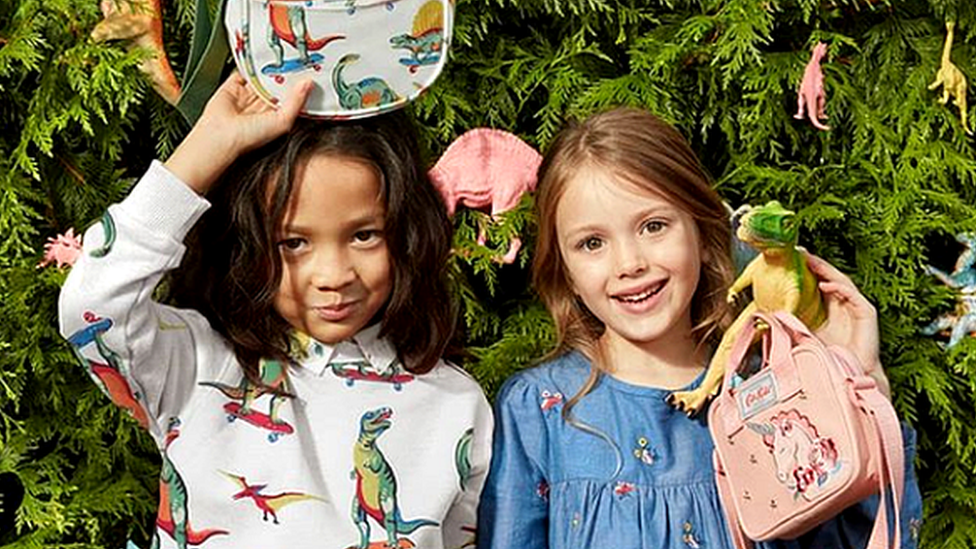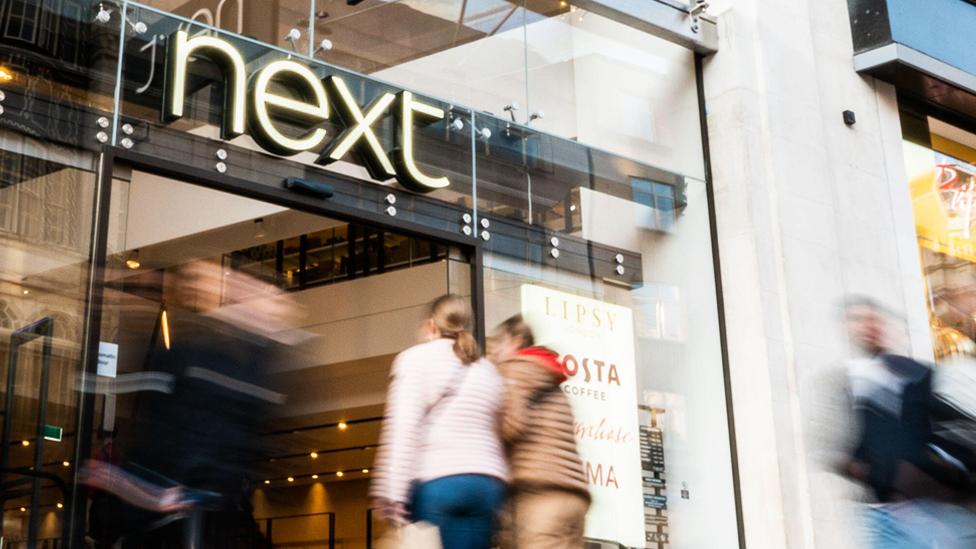Next says prices to rise by less than expected this year
- Published
- comments

High Street retailer Next has said it will put up its prices by less than expected this year.
It said it now expected prices to rise by 7% in the spring and summer of 2023, and 3% in the autumn and winter - slightly less than the increases it warned of in January.
It said shipping costs were falling and suppliers were charging better rates.
It came as Next reported a 5.7% rise in pre-tax profits to £870.4m for the year to January.
On Tuesday, the retailer also announced it would buy the Cath Kidston fashion brand for £8.5m, but not its shops.
Next has about 500 stores and trades online. It is often considered a good indicator of how the British High Street is doing.
The retailer had already put up its prices in 2022, blaming rising production costs and a weaker pound.
And in January it said prices would have to rise again by 8% this spring and summer, and by a further 6% this autumn.
But on Wednesday, Next boss Simon Wolfson said he expected the UK to be "past peak inflation" towards the end of the year.
Despite the strong results, Next is forecasting 2023 will be bumpy, with sales and profits falling as energy and wage costs remain high.
Most businesses have been putting up prices, with grocers Aldi and Lidl hiking them recently.
Last year bakery chain Greggs, retailer Marks & Spencer and furniture business Dunelm also announced price increases.
The Bank of England expects overall inflation - the rate at which prices rise - to fall to under 3% by the end of the year, as energy and food costs come down.
But there was a surprise jump in inflation to 10.4% in the year to February from 10.1% in January.
The Bank of England has put up interest rates 11 times since December 2021 to try to control rising prices.
And Governor Andrew Bailey has urged businesses not to put up prices faster than inflation, warning it would drive up the cost of living even further.
"I would say to people who are setting prices - please understand, if we get inflation embedded, interest rates will have to go up further and higher inflation really benefits nobody," Andrew Bailey told the BBC's Today programme.
Lord Wolfson declined to comment on Mr Bailey's remarks but suggested Next would reflect falling inflation rates in its pricing.
"Where we get better prices, we've passed them on to consumers… We want to remain competitive in the long run."
- Published28 March 2023

- Published10 November 2022
